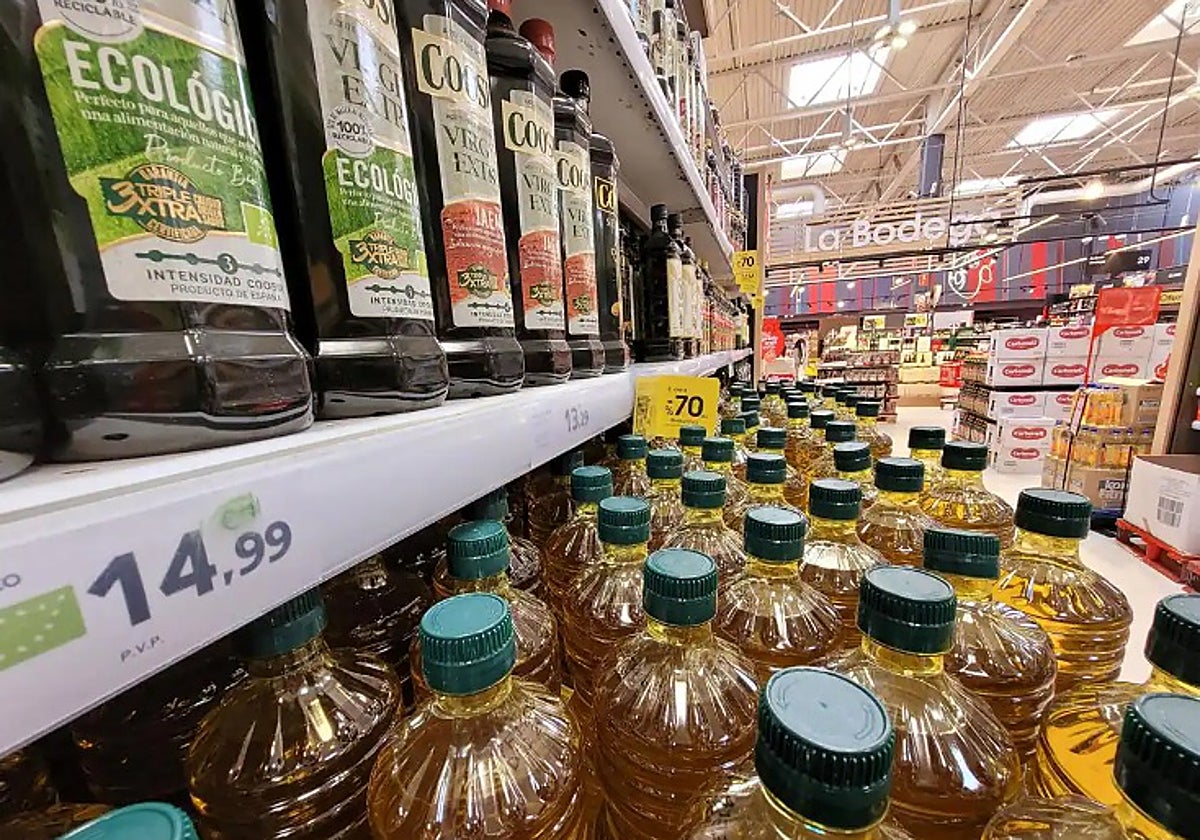Inflation in Spain: shopping basket price increase slows to lowest rate in two years
Figures released for February show the rate was 5.3%, mainly due to the fall in the price of pulses and vegetables (-2.7%) and milk (-1.3%) in the year-on-year rate
Edurne Martínez
Madrid
Friday, 15 March 2024, 17:18
The inflation rate affecting the shopping basket continues to be the most difficult to reduce in Spain, but February saw much more moderate food price rises than in previous months. Data released by the national statistics institute (INE) on Thursday 14 March showed that inflation on food items for February was 5.3%, the lowest rate in two years. This drop in food prices was mainly due to the fall in the cost of pulses and vegetables (-2.7%) and milk (-1.3%) in the year-on-year rate.
Year-on-year headline inflation closed February at 2.8% - its lowest level since August 2023 - due to the moderation in food prices and also to the reduction in energy prices, which continue to fall. This rate means that total inflation has fallen below the 3% limit, something that had not happened for six months either. The price of natural gas and CO2 emission rights - two key factors in setting electricity prices - have plummeted, while renewable energies closed February with record generation, pushing electricity prices down.
The withdrawal of part of the public support measures to combat the effect of inflation on households and companies had an initial impact in January, when inflation rebounded by 0.3% to 3.4%. However, in February prices were contained and the rate fell by 0.6% to 2.8%. The same happened with core inflation, which allows for the analysis of the behaviour of prices in the daily basket of products and services, excluding energy costs and unprocessed food, which are the most volatile. Core inflation stood at 3.5%, at 0.1% lower than in January. This is the lowest rate in two years, although it is still 0.7% above headline inflation.
Beyond the price falls in pulses and milk, other foodstuffs continued to rise. The most pronounced rises were in pork (+11%), fresh fruit (+9%), sheep meat (+8%) and potatoes (+7%). But there is still one product that stands out above the rest: olive oil, which in February shot up again by 67% compared to a year ago and by 5.3% compared to the previous month. This liquid gold has risen by 190% since January 2021.
Spain's Ministry of Economy stressed that the reduction in inflation in February shows "the capacity of the Spanish economy to make the highest economic growth among the main countries in the euro area compatible with price moderation and with the maintenance of the social shield measures supporting the most vulnerable". Likewise, the department headed by Carlos Cuerpo stressed that this sustained reduction in inflation "is allowing the purchasing power of families and the competitiveness of Spanish companies to improve".
Consumer Price Index
And although inflation is expected to behave well this year, the Funcas think-tank estimates that the Consumer Price Index will be 3.1% in 2024. The group said that it is likely that the rate will vary upwards, especially from June, when basic foodstuffs will no longer have the current tax rebate and could lead to an upturn in prices.
In addition, there are other factors that contributed to the rate not falling further last month. The most notable of these is transport, which rose by 2.1% compared with January to 2.4%. This was mainly due to the rise in fuel prices and tourism and hotels and restaurants (+5.9%). Public transport remains stable, with free travel cards for the Cercanías commuter trains, medium-distance trains and national bus lines, as well as discounts on the Avant trains, remaining in force throughout the year. Similarly, the government has once again covered 30% of urban and interurban ticket fares for one year, provided that the Spanish regions contribute at least 20% to achieve a minimum discount of 50%.
